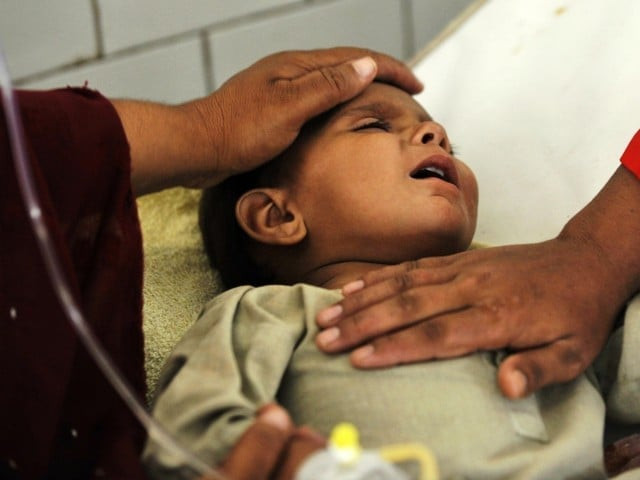Substandard blood kits: Seeking transfusion, children leave with HIV
Two siblings were allegedly infected by tainted blood

Substandard blood kits: Seeking transfusion, children leave with HIV
Cheap and substandard kits used for screening blood are mostly unregulated, much like the stents which have been making headlines recently.
HIV/Aids cases on the rise in Pakistan, says report
But the use of these kits may present an even greater danger, as blood transfusions are more common than heart surgery. Around 1,830 public and private blood banks operate in the country, and manual kits are widely used in both.
Unsafe blood transfusion got fresh attention after two children contracted HIV after receiving blood transfusions in the twin cities.
Officials were cautious when they first heard reports, because in December 2014, reports suggested that 10 children with thalassemia had contracted HIV after getting blood transfusions in other parts of Punjab.
But the fresh cases of these two children are genuine, health officials said. The victims – nine-year-old CB* and eight-year-old NB* - are siblings from Bhara Kahu, who suffer from a rare congenital platelet disorder.
They have received more than 1,700 transfusions in routine and emergency situations over the last few years. Their father, Nadeem B* said most of the transfusions took place at the Pakistan Institute of Medical Sciences (Pims) blood bank, and suspects that blood at the hospital may have been tainted.
More than 2,000 Indians contract HIV after transfusions
Pims officials, however, said the children had received platelets, plasma and red cell transfusions from Pims, Polyclinic, CDA hospital and many other private and public sector blood banks in Islamabad, Rawalpindi, and other cities for the last seven years. It is likely that they got the infection from a transfusion from a substandard blood bank in Rawalpindi or any other city, they said, while referencing the more reliable blood screening techniques used in most of the facilities in Islamabad.
Hassan Abbas Zaheer, head of the Pims blood bank and manager of the National Blood Transfusion Programme, said Pims uses the more advanced chemiluminescence blood screening technique.
All blood donations are screened on this system and a quality assurance system is in place, he said, adding that 150 to 200 patients receive blood components from the Pims blood bank every day, and there have been no complaints.
But while most blood banks in Islamabad use some form of automated blood screening technology, in most other parts of the country, including Rawalpindi, blood banks mostly rely on low-end manual kits which have high error rates. When bought in bulk, cheap kits cost as little as Rs5, while quality kits cost between Rs100 and Rs150.
Meanwhile, Nadeem does not blame anyone at the hospital. He said he had no way to know for sure which transfusion caused his children to get HIV. But he did have a simple message to try and save others from the heartache he feels today.
“Better screening would save other children’s lives.”
*Names changed to protect identity
Published in The Express Tribune, February 1st, 2017.



















COMMENTS
Comments are moderated and generally will be posted if they are on-topic and not abusive.
For more information, please see our Comments FAQ